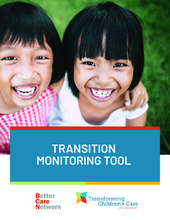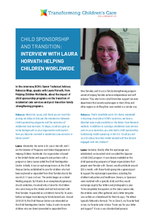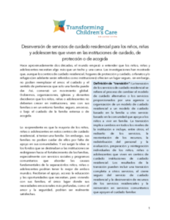Displaying 231 - 240 of 4431
This is the Executive Summary of the World Social Protection Report 2024-26: Universal Social Protection for Climate Action and a Just Transition which provides a global overview of progress made around the world since 2015 in extending social protection and building rights-based social protection systems. It calls on policymakers, social partners and other stakeholders to accelerate their efforts to simultaneously close protection gaps and realize climate ambitions.
With a sharp focus on the climate crisis, this report provides a global overview of progress made around the world since 2015 in extending social protection and building rights-based social protection systems. In doing so, it makes an essential contribution to the monitoring framework of the 2030 Agenda for Sustainable Development. And it calls on policymakers, social partners and other stakeholders to accelerate their efforts to simultaneously close protection gaps and realize climate ambitions.
The purpose of the tool is to assist technical support practitioners to closely track and monitor the progress of residential care services transitions they are involved in. It can be used as a workplan to guide the implementation of a transition strategy, allowing practitioners to identify relevant transition activities, set progress-related goals, and monitor progress against those goals.
In this interview, BCN’s Senior Technical Advisor, Rebecca Nhep, speaks with Laura Horvath, from Helping Children Worldwide, about the impact of child sponsorship programs on the transition of residential care services and post transition family strengthening programs.
In this workshop panelists explored UNICEF's Data and Analytics Section's protocols and tools for gathering data on children in residential care.
Attention child protection professionals, share your insights on alternative care in humanitarian settings. Your feedback will shape new resources and updates to the ACE Toolkit which is critical for both humanitarian and development actors working in alternative care and care reform. Deadline is September 27.
Calling all humanitarian and child protection leaders, advocates, donors, and supporters. The Alliance for Child Protection in Humanitarian Action, the Global Child Protection Area of Responsibility, UNHCR, and Save the Children, invite you to the global launch of their latest report, ‘Unprotected: Analysis of Funding for Child Protection in Humanitarian Action in 2023’.
VIVA is a training space with panels, talks and experiences of international and local models on the model of transitional housing to autonomous life for young people without parental care.
Hace aproximadamente dos décadas, el mundo empezó a entender que los niños, niñas y adolescentes necesitan algo más que un techo y una cama.
A high-level event hosted by the UN Global Disability Fund (UNPRPD), the International Disability Alliance (IDA) and the International Disability and Development Consortium (IDDC) to mark the Summit of the Future and identify opportunities ahead of the Global Disability Summit in 2025.





